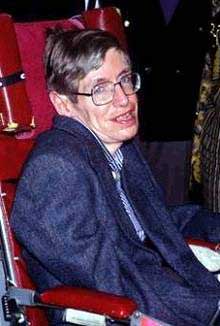Stephen Hawking was like any child growing up in happiness, but an unfortunate event changed his life.
 One winter day, the Hawking family went ice skating. The lake was thickly frozen, and everyone was joyfully skating around. Suddenly, Hawking fell and lay curled up on the ice. He struggled but could not get up, and after a while, he needed the help of his parents to stand.
One winter day, the Hawking family went ice skating. The lake was thickly frozen, and everyone was joyfully skating around. Suddenly, Hawking fell and lay curled up on the ice. He struggled but could not get up, and after a while, he needed the help of his parents to stand.
His mother asked him what had happened. He replied that he could not control his arms and legs. Hearing this, she became very worried and immediately took him to the hospital.
After two weeks of observation, the doctors discovered that Hawking had a very rare disease. Those afflicted with this condition gradually lose their ability to move, ultimately becoming unable to breathe. This disease is incurable and typically only allows for two to three years of life.
The family was terrified, and Hawking felt disappointed; he became less talkative and less cheerful, losing interest in everything. His father searched everywhere for doctors and cures, while his younger brother and sister were always by his side. As time passed, life continued quietly, and Hawking looked up at the dark sky, with a few blinking stars reflecting his sorrowful gaze. He thought: “I have so many things left to do; it can’t get any worse than this.” Suddenly, he felt a sense of relief and a newfound awakening.
In the following years, Hawking bravely faced his illness, persistently studying and researching. Contrary to what the doctors had said, he did not only live for two or three years but continued to live resiliently.
Once, when Hawking caught a cold and started coughing, the doctors diagnosed him with a severe lung infection. They provided him with oxygen and told his wife that the situation was dire and that there was little hope. She cried silently. In an effort to save him, she called Hawking’s doctor in England, who suggested that there might still be a way to perform a tracheotomy to save Hawking.
Thus, Hawking underwent a tracheotomy surgery, once again defying death, but he could no longer speak.
 To help Hawking communicate with others, his family and friends devised many methods: some provided him with software that allowed him to use a computer to replace his speech. Later, someone installed a device for Hawking that transformed the text on his computer screen into sound, which brought him immense joy. He was not only able to converse with others but could also write books through the computer. Even if he could only write 15 words per minute, Hawking persisted in completing his work.
To help Hawking communicate with others, his family and friends devised many methods: some provided him with software that allowed him to use a computer to replace his speech. Later, someone installed a device for Hawking that transformed the text on his computer screen into sound, which brought him immense joy. He was not only able to converse with others but could also write books through the computer. Even if he could only write 15 words per minute, Hawking persisted in completing his work.
As time went on, Hawking’s health deteriorated further, but as long as he could move on his own, he did not want to rely on others for help. One time, a friend saw him trying to go up the stairs and was astonished. Although he could not walk by himself, he had managed to get to the second floor by gripping the handrail and pushing himself up step by step, which took a great deal of time and effort.
People cannot imagine the challenges Hawking faced in life, nor can they fathom the incredible determination and courage he had to overcome these obstacles. He always needed someone by his side to help him rise, eat, and even turn the pages of books.
Despite these difficulties, Hawking did not reject life; he continued to pursue the work he loved, dedicated to his research until the very end.
————————————
Return to: “Stephen Hawking – The Curious Child“
Read more: “Stephen Hawking – Seeking Justice for Galileo“

















































